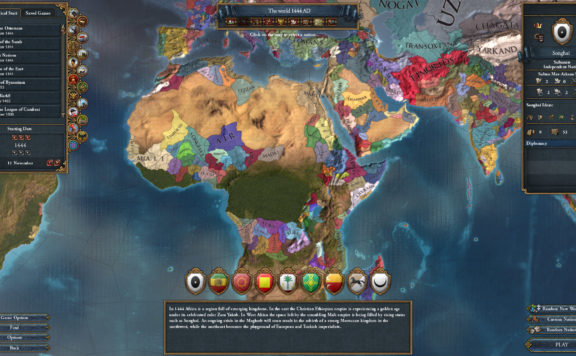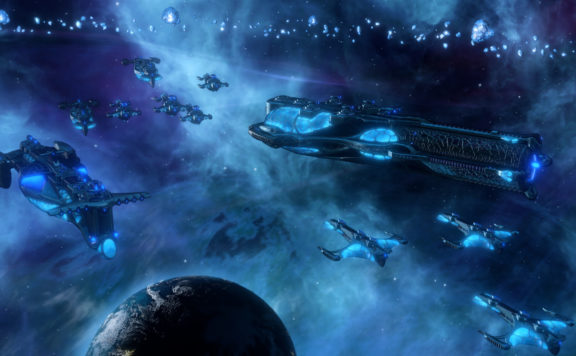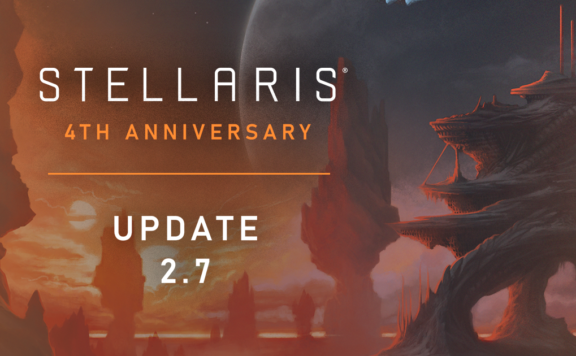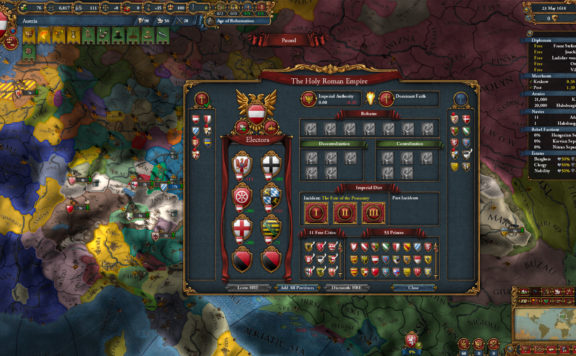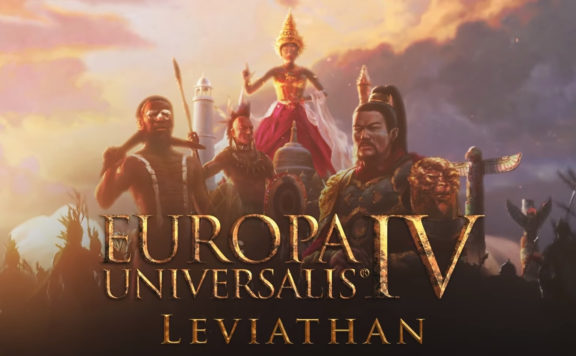Nobunaga’s Ambition: Taishi, originally released on steam as a Japanese only game, has been fully translated and available now for the West to enjoy! Developed and published by Koei Tecmo, Nobunaga’s Ambition is a grand strategy, historical simulation game. It puts you into the shoes of Japans renowned daimyō leaders of the Sengoku Period, or “Age of Waring States.” This was a time of great strife and constant war between rival clans in their own attempts to control Japan the way they chose. Nobunaga Oda was considered one of the three unifiers of Japan, and as such the game is titled to match the core concept of the game: complete control over the country. Nobunaga wished to unify Japan under a single banner to bring about the end of all wars and bring peace and prosperity to Japan, your job in Taishi is to make that happen, with or without Nobunaga. The game offers awesome cutscenes that play out important historical moments throughout the Sengoku period. Giving you historically accurate information about the different battles that played major roles in reforming Japan in that period.

Nobunaga’s Ambition is a series of grand strategy games that have heavy emphasis on strategy at the grand scale. You aren’t just amassing large armies and doing whatever you please with them. You’re building infrastructure within your castle towns that will allow you to mobilize your armies and sustain their upkeep. You’re making allies to ensure you have a constant supply of reinforcements. You’re ensuring you have the proper trade routes so the gold continues to flow in. One mistake and you’ll pay severely. Unlike many of these grand strategy games, unit upkeep is very real. When you deploy an army, that army has to be paid in both gold and provisions. If you don’t have enough of either, men desert left and right. That large 50,000 unit army suddenly dwindled down to a mere 1500 men in seconds. Therefore a lot of thought needs to go into planning. What castle towns do I require? Which infrastructure should I build? If I go to war to take this land that I need, who will I make enemies of? Everything you do, from trading, to supporting the war (or not) affects relations with the other lords. Let me be completely honest here, this game is hard!

Just because it’s called Nobunaga’s Ambition, doesn’t mean you’re required to play as the Oda clan and control Nobunaga. There are a lot of lords to choose from. You can expect to play any of the lords from the Sengoku period, including their sons. I chose the Oda clan, which was originally a much smaller clan in comparison to how it was at the end of Nobunaga’s reign. The game reflected this, and it made it that much harder to play. When you’re playing a small clan, you have limited resources and men. This made attacking other lords extremely hard, and if you weren’t careful, bring the wrath of their powerful allies onto you and end your clan for good – Game Over Man. The game spans from March of 1545, through the end of the Sengoku period and into the Nanban trade period, January 1582. Each scenario you choose to play gives you an historically correct layout of what land each clan controlled at that time. The larger the clan, typically the easier time you’ll have playing the game, but also more enemies. You have a good 86 or more clans to choose from. Choose your favorite and make your claim against all of Japan!

Building your clan up is fun, but sometimes frustrating. Everything has a cost, whether it’s provisions, or gold, you truly have to think about what needs to be built when and where. As an example, Trade Zones can only be built on certain tiles. If you mess up and build something onto that tile, you really just messed yourself up. Trade zones are the largest portion of your gold income, so you really need to ensure each area you’re able to build one, you do. Then you have to worry about your horses, muskets, defenses, and even reservoirs. Reservoirs play a decent role in your provisions because of mother nature. Yes, disasters can happen. A Typhoon can rip over and destroy your fields, droughts can lead you to no rice, and earthquakes can destroy what supplies you have if not protected. Reservoirs protect that valuable resource. So everything you build truly plays a role in whether you succeed or fail as a daimyō. The issue that comes into play is your “actions” per turn. You can pretty much build whatever you want each turn so long as you have the gold. Investing or Expanding trade zones, however, you’re very limited. At the start of the game you have one action per turn to invest or expand, or monopolize a trade zone. You unlock a second, and third as you play with points you can put into a talent. Therefore making it of upmost importance to continually expand and invest as you can to ensure your coffers stay full of precious gold, otherwise you’ll quickly run out as you build up even enough troops for defense.

Earlier I mentioned troop upkeep and how difficult it makes the game, this is where the true difficulty in my opinion comes into play. There are a plethora of grand strategy games out there that allow you to build massive armies and march them wherever you want and just go to town conquering the world. You pay a single upkeep fee per unit, and simply build more buildings of the currency used to keep that upkeep steady. No problem, easy! With Nobunaga’s Ambition, that’s simply not the case in the remotest of ways. Each unit has a pay and upkeep cost in provisions. Failing to meet that upkeep cost and pay will mean that unit deserts and goes away. This is an extremely grand strategy game. It’s not uncommon to go to war with 60,000 to 300,000 units at a time. To put it into perspective, my largest army was 62,000 so far. I’m unsure of the monetary upkeep cost, as I had a rather booming economy, but the provision cost was somewhere in the neighborhood of 35,000 provisions a month. I was only making 30,000 provisions a year. That army wasn’t sustainable. I used it, took a castle, and had to immediately disband it, or ask for provisions from my allies at a steep cost, sometimes 3000 horses, sometimes 42,000 gold, sometimes just a treasure I owned. As a small clan, I was forced to really think about how I attacked other clans. So I did it in a rather…cheap way. Let’s take Miyoshi for example. This dude came at me from the start, he came from half of Japan away just to screw with me. I could barely defend against him, it was brutal, not having the supplies to amass an army to really rout him away. My saving grace was the Yamaha clan. They decided he was easy picking since he had his large 50,000 army attacking me, with no troops to defend right next door. He retreated, and while he was engaged, I’d send a messenger asking for peace. While at the same time, sending every troop I had to his nearby castles and taking what I could before the peace took hold. Peace treaty signed, I’m now 2 castles up. Like I said, sneaky cheap, but I had no choice!

Politics play a large role in the game. Having an ally isn’t enough. You need strong allies. The stronger, the better, but that doesn’t mean you shouldn’t strive to have allies all around you. As a small clan, I kept good relations with all of my neighbors but one. This allowed me to expand eventually, but also keep them that one neighbor from attacking me. It also keep those larger clans like Takeda from steam rolling me because I pretty much sent everything I could to them to make them my friends. Politics is one of the stats you get on your units. You can gain more by building political camps and allowing them to train over time. This allows you greater influence in talks between other clans to get what you want or need. It may seem small, but it plays a big role in the overall game.

Talking about Stats, every time your council meets, you appoint different officers to the council. These officers bring in one of four stats to the table: Provisions, Gold, Military, or Politics. These add up to a total over time, allowing you to spend them into certain points on a skill tree. These skills affect various things such as unit combat ability, harvest amounts, and different political advantages. While none of them are exceedingly powerful, over time it adds up to a substantial amount of bonuses.

Combat is an area I think the game really shines. During combat there are 3 phases. At the start you have a preparatory phase. While limited, you’re allowed to select which unit goes where, and whether you’re going to use a preset strategy or not. Then throughout the combat phase, you have pauses that allow you to order your troops. It goes between order phase and action phase throughout the rest of the engagement. As far as tactics go, I usually use either Phantom, or Rush Main Camp. Phantom allows you to basically hide and ambush, while Rush Main Camp allows a single unit to abandon everything else and rush right at the enemy leader once it has been located. While unit count matters, in a fight the main goal is to destroy the enemy leader. Do this and you win, no matter how many troops you have left. I didn’t realize this at first. I’d have 15,000 units left, and he had only 1,500, but somehow I lost. Then it donned on me, my leader got routed. So numbers matter, but only if they can successfully defend your leader.

Ambushes, flanks, and pincers are very real. The game allows you to pincer a unit between your troops, so much that you can literally block the enemy from running if you position properly. Boxing them in, giving them no quarter and just decimate them. Easier said than done, but it’s very possible. Flanking gives you an advantage of a disadvantage depending on if you’re on the receiving end or not, same with ambushes. Not only do they destroy troops, it provides negative morale, which leads to them “breaking” and fleeing. Pair this with each lord’s personal abilities, and you have a lot to think about on the battlefield. Each lord has a special he can use, a “tactic” if you will. These range from taunting the enemy, to Calvary charging. Each play a unique role on the battlefield giving you an advantage over the enemy. Using them incorrectly, however, can lead straight to disaster. Positioning is key, ensuring your leader survives while hunting down and killing the enemy leader is a balance job that will both have you on your toes and wits ends at times.

One really cool feature I liked about the combat was the ability to call for reinforcements from other clans. You can request troops from a certain castle within a clan for use for six months. They charge you a fee, whether it’s gold, provisions, or something else, and you get to deploy that amount of troops loaned to you. You can do this with as many clans as you are in good standing with. I’ve had to use it on numerous occasions to defend against Miyoshi. If it were just my troops alone, I’d have died long before my journey ever begun. The flip side to this is other clans can request troops from you as well. If a friendly clan goes to war, you’re asked to join sides or refuse to join at all. Any clan you join sides with can and will request troops from you. When you supply those troops, you are given money or resources, but you also lose those troops for six months. Leaving whichever castle or castles you choose empty of troops to defend. This is a dual sided blade. If someone chose to attack you at that moment, you will be in a weakened state, so make sure you choose correctly based on the current situation at hand!

There are a couple things I should note that I did not enjoy too much. While the game is fun and I enjoy it, no game is perfect. There are some gameplay mechanics that I didn’t fully understand, nor do I believe were stated clearly during the tutorial. One of them was the whole leader thing in combat. I was completely dumbfounded that I had so many more troops remaining over my enemy but still lost the fight. Then there’s the fact that some of the CPU controlled enemies seem completely overpowered. If you have a unit of 10,000 troops, and the enemy has a unit of 3,000 troops, you expect that larger unit to win. I’ve had a couple engagements where that 10,000 troop unit engaged the much smaller 3,000 troop unit and instantly go from full to almost empty and broken. It makes no sense why this happens. Finally it appears that the game completely ignores Vassal states. A Vassal, in simple terms is a state you control through military force. They are much smaller, therefore know they have no choice but to pay tribute to you. As such, they’re basically an extension of your clan from that point forward. This is what confuses and upsets me. I’ve had several vassals get attacked by an ally, or a friendly state, and take them over. I cannot defend them because I’m not at war with that clan, and there’s literally nothing I can do except declare war and hope for the best. I see this as a huge oversight and a much required fix. That being said, the pros outweigh the cons and I think the game is very fun.


